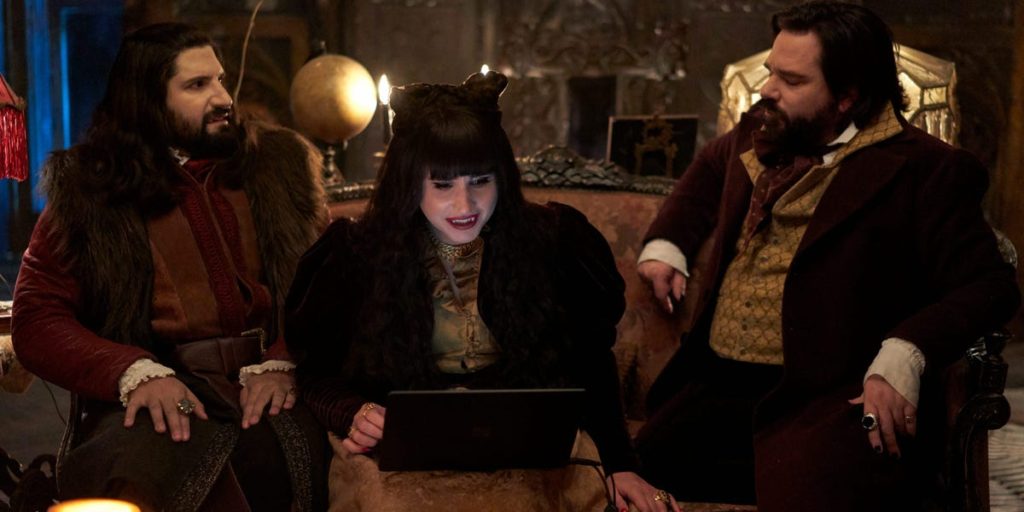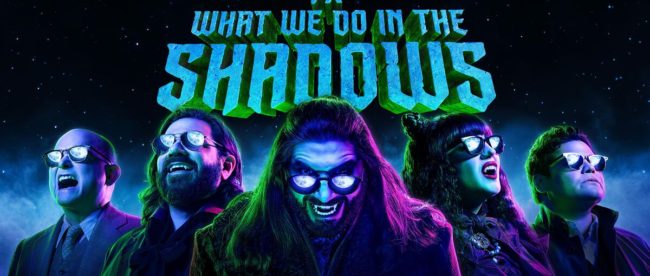What We Do in the Shadows – Vampire Fiction Isn’t (un)Dead
Drawing from the 2014 film, and its subsequent remakes and previous incarnations, FX’s What We Do in the Shadows tells the tale of four vampires living in Staten Island, NY, with their disgruntled familiar Guillermo de la Cruz. The comedy series, which follows the quartet of vampires with a mockumentary film style, details their everyday lives and the comedic hardships of living in the ever-changing world while struggling with immortality, romance, and sexuality.
While the show features crude humor (which earned it it’s M rating), the queer joy, vibrancy, and explicit representation is heartwarming. The show has its moments, but they often fall flat because they can’t be touched on without losing the overall flavor of the show — which is humorous, rarely taking itself too seriously. However, there are scenes of solid, explicitly stated romantic moments between same sex characters that rarely make the cut in shows in the mainstream. Which alone warrants the spotlight for the still-running show.

Vampire fiction — especially romance — is no stranger to anyone who’s picked up a book or seen a movie in the last ten years. Even the fan fiction community has seen a massive increase in the genre following the release of shows like the originals, vampire diaries, and supernatural. And FX’s What we do in the shadows undermines almost everything we’ve seen, using cliches to its advantage, and digging at the silly tropes we see so often in YA romance.
Although the show is based on Taika Waititi’s original New Zealand film of the same name, Jemaine Clement builds on the world, the story, and the crude, witty humor of the film in the three seasons of his show. What We Do in the Shadows is delightfully funny, but also works incredibly well at building dread over the course of snappy thirty-minute episodes. The story’s unique, unifying force differs greatly from other shows of its genre, rather than isolating storylines to each episode, the seasons are neatly concluded with satisfying finales, and fulfilling character arcs.

There isn’t anything quite like What We Do In the Shadows out right now. With its unique film style, witty writing, satirical and humorous themes, it smartly challenges stereotypes of its genre while also being explicitly queer and representative of POC main characters. Clement’s show is proof that despite vampire fiction being stretched thin, and run dry by popular media, clever storytelling and a good creative mindset can make even the most classic of tropes feel new and alive again.

